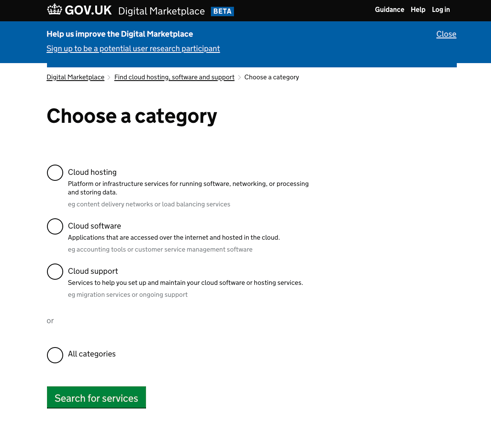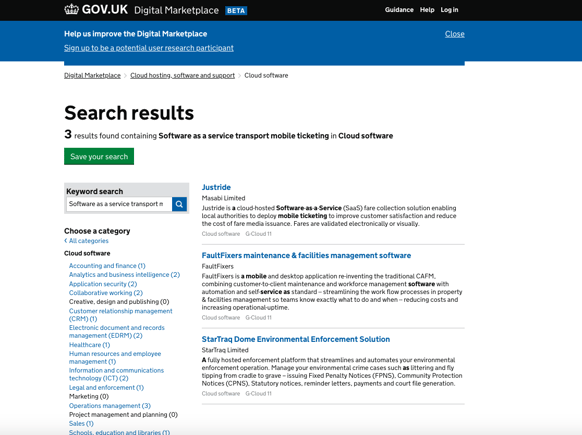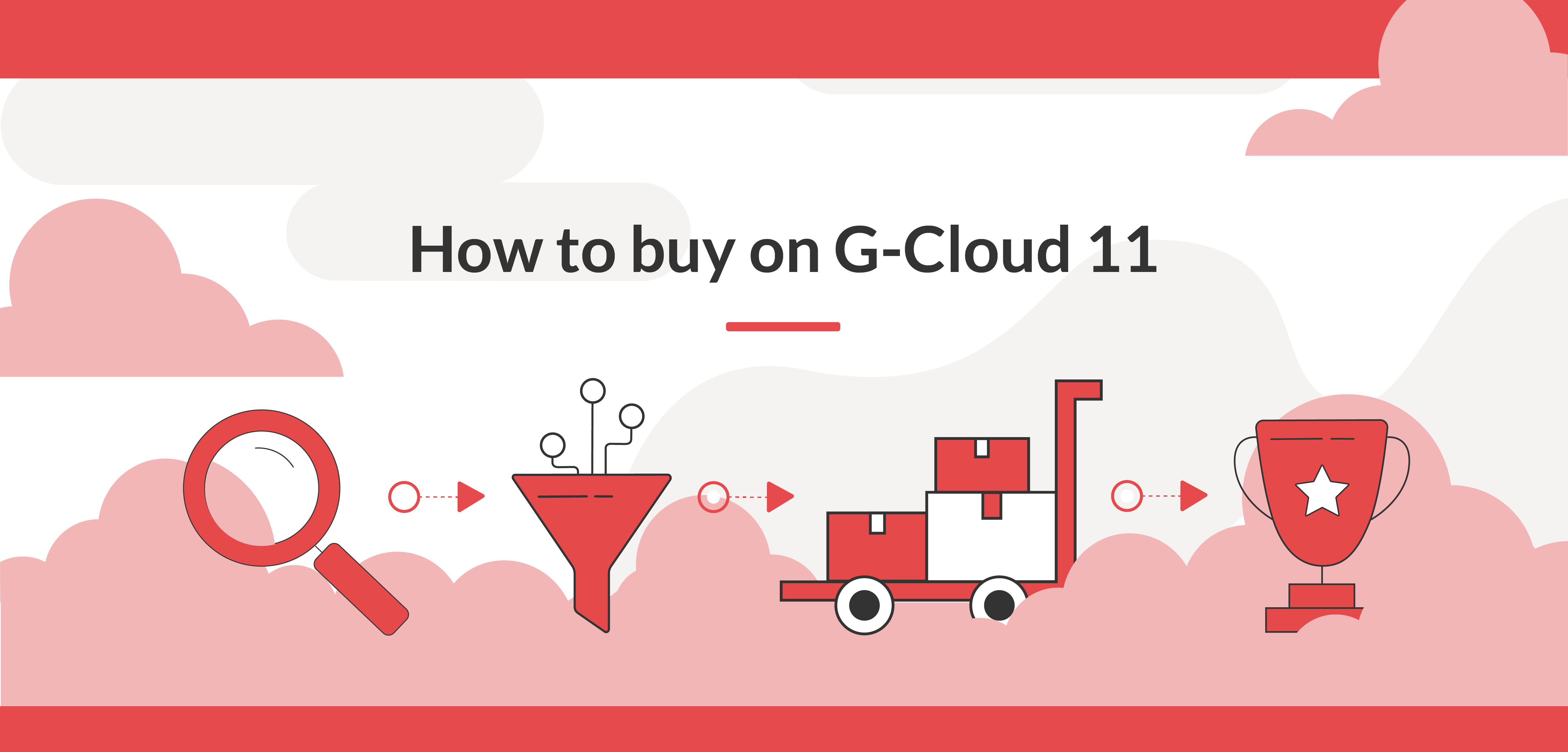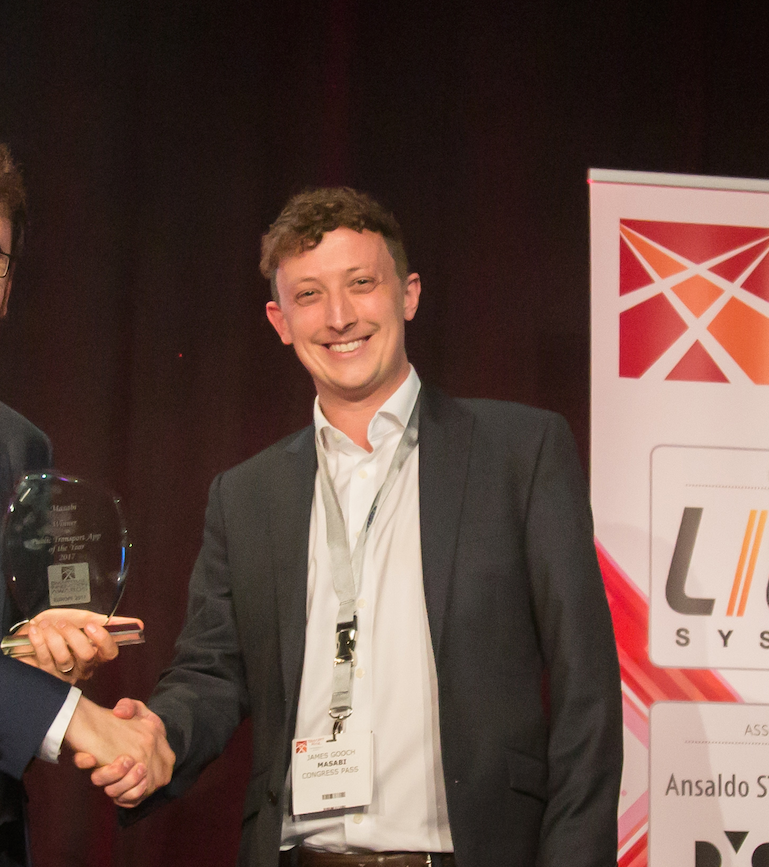The procurement problem and the G-cloud 11 solution
If you are a public sector IT buyer and have gone through the ‘traditional’ procurement process before, then you know how time-consuming and costly it can be. And on top of that, opting for a traditional procurement process means you often end up investing in legacy technology solutions that take years to deploy and risk becoming out of date way too quickly...
Wouldn’t it be great if there was a way of avoiding this and purchase modern technology, quickly and cost-effectively?
With G-Cloud, all of that changes. This UK government framework makes going through a procurement process a lot simpler, faster (with direct awards) and more convenient for public sector IT buyers looking for a Software as a Service (SaaS) solution. Using G-Cloud also means that as a buyer, you get access to the most innovative technologies, helping you move away from expensive, rigid and inflexible legacy technologies.
What is G-Cloud 11? (What is Government Cloud 11?)
First of all the basics, The Government Cloud or “G-Cloud” is a procurement framework that has been designed to make public service IT procurement easily accessible for buying Software as a Service (SaaS) solutions.
The original aim of G-cloud was to make it easier and more cost-effective for public sector IT buyers to go through procurement requirements and award contracts. G-Cloud 11 is the latest version of this framework and is the UK Government’s digital marketplace for approved and accredited cloud suppliers, such as Masabi and our SaaS ticketing platform for public transport, Justride.
How to get started with G-Cloud 11
Sounds interesting, but not sure how or where to start? Fear not, we’ve got you covered! G-Cloud 11 is far easier than going through a traditional procurement process but we still think you might find this ‘how to’ guide useful. So here are the key steps you need to go through in order to buy on G-Cloud 11.
5 steps to buying on G-Cloud 11
Step 1) Know what you want: set up your requirements
This might sound a bit obvious but before you start searching on the G-Cloud platform, you need to make sure that you have your requirements and priorities agreed. It’s important to take some time to set your business objectives, your budget as well as all your requirements, separating them from what’s essential to what’s desirable in order to help you narrow down your search while also making sure you opt for the best cloud services supplier.
Step 2) Opt for key search terms
Once you’ve got your requirements set, you will need to start searching for a potential supplier on G-Cloud. With over 4,000 suppliers and nearly 31,000 services, it’s easy to get lost. G-Cloud gives you the option to choose from 3 categories to help you narrow down your search (from cloud hosting, to cloud software and cloud support) there’s also an option to select all categories in case you’re not sure about which category to pick.

When choosing your keywords, we recommend being as specific as possible, this helps you get to a shorter results list. And if you are specifically looking for Masabi’s offering on G-Cloud 11, we recommend you use the following keyword combination: ‘Software as a Service mobile ticketing’.

Step 3) Narrow down your results
Once you have selected and entered your keywords, you are likely to get a comprehensive results list. Based on how specific you were when entering your keywords, this list can be quite long. But fear not, you won’t need to go through every single result. You have the option to refine that list and filter your search results by adding in some more criteria such as the length of the contract, pricing etc. This will help you get to a much shorter and more refined results while also making sure that the suppliers appearing on the list meet your requirements and are worth getting in touch with.
Step 4) Evaluate the results
Once you have your results narrowed down, you will need to go through each of the suppliers and take a look at their offering in order to find the one that will best match your requirements. If only one supplier meets your requirements you can award them the contract directly. If not, you will need to assess your options to find the best value contract for either the lowest cost or Most Economically Advantageous Tender (MEAT). Shortlisting suppliers using the MEAT method is done taking into account the following criteria and using your own characteristics and weighting.
- Whole life cost: this includes cost effectiveness, price and running costs as well as on-boarding, exit, connectivity and support costs.
- Technical merit and functional fit: including coverage, network capacity and performance as specified in relevant service levels (remember to consider the integration or replacement of legacy systems).
- After-sales service management: which includes help desk services, account management functions and assurance of supply of a range of services.
- Non-functional characteristics: such as supplier terms or any support provided with onboarding and offboarding, scalability as well as reliability etc.
It’s also worth noting that G-Cloud11 allows a ‘Direct Award’ process, meaning that buyers can directly award the contract to the supplier that best suit their needs. As you’re not allowed to hold a competition to choose a supplier (tenders are not allowed through this framework) it is overall much quicker and easier than a more traditional procurement.
You can get in touch with suppliers to get more details about their service description, their terms and conditions, pricing or service definition documents. However, you are not allowed to negotiate with suppliers (you can ask them to give you a price but you can’t negotiate it).
5) Award the contract to your chosen supplier
The buyer and supplier have to sign a copy of the contract before the service can be used. The maximum length of a G-Cloud contract is usually 24 months, but in some cases you may be able to extend the length or your contract with the right approvals.
Accessing and using the G-Cloud framework allows public sector buyers to search for, evaluate and buy cloud services in a much quicker and easier way. At Masabi, we are proud to have been selected to be a part of this framework, making procurement processes simpler. For more details on Masabi’s offering on G-Cloud 11, make sure to head to our G-Cloud page.


